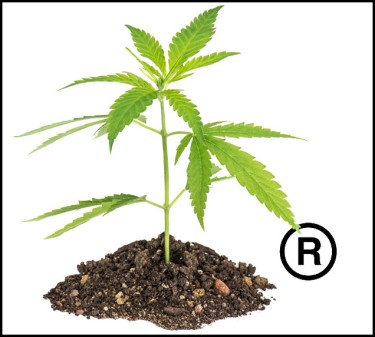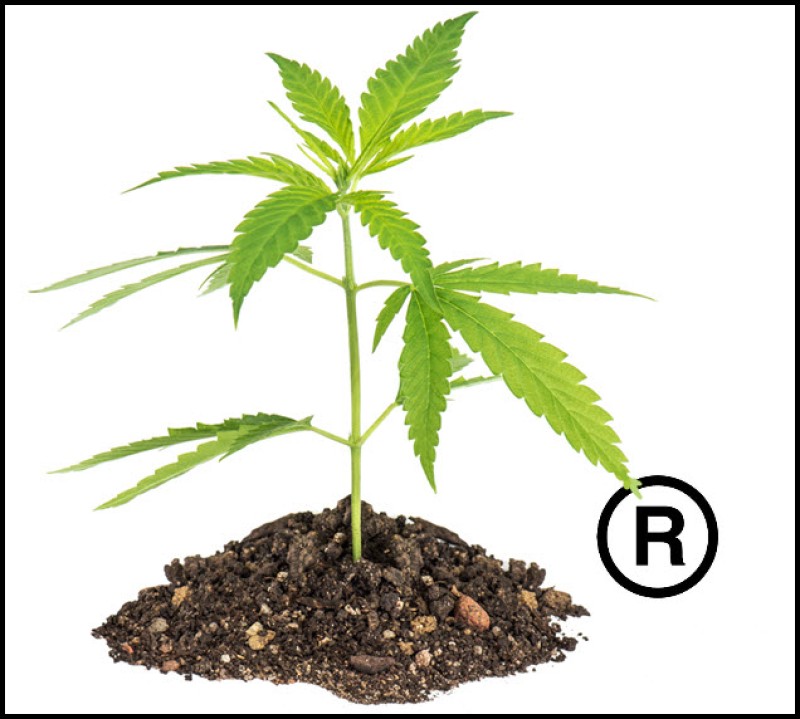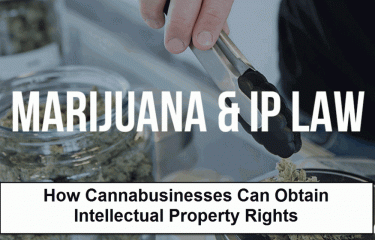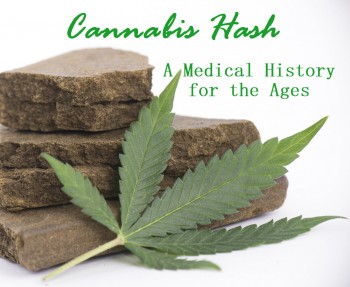
You have probably read about the "Spotify" and "Potify" trademark case that the US government ruled violated the music streaming services trademarked name. As a rapidly maturing industry with an expanding market, the cannabis industry needs solid and recognizable brands. Brand names possess power in every industry. The global cannabis industry runs on differentiation and innovation. Companies in developed industries understand that "identity" is one of the most valuable assets a company can have. It is also the most prone to replication.
Cannabis entrepreneurs need a way to secure their brand's legality and also edge out the competition as well as other knock-off brands. Registering a brand's trademark is the easiest way to police a product and prevent intellectual property theft as a company thrives.
Trademarks In The U.S. Cannabis Space
Newcomers to the industry are unaware that cannabis industry brands can be trademarked. This misconception is due to the absence of federal cannabis reform. There are state and federal trademarks that can be applied for in legal states. The U.S. Patent and Trademark Office (USPTO) finalized the trademark processing for U.S. Weed Channel, Cheech's Private Stash, Got GUMMIES, and Medmen.
As the availability, legality, and acceptance of cannabis and hemp products continue to grow, it is essential that brands register their trademarks. This process is not as straightforward as it ought to be due to the federal stance on drugs. Hence, the registration of trademarks requires taking deliberate actions guided by sensible tactics. Marijuana patents fall into a slightly different legal category and process for registration.
Purpose of Registering Trademarks
A trademark is a unique identity that improves customer loyalty. Note that a trading name is not a trademark.
Registering for a trademark bestows the brand with the unique right to use an identity. You must be prepared to tender proof of the mark's use. You must also ascertain that consumers recognize and associate your products with the mark.
Registering for trademarks in the cannabis industry is expensive, complicated, and time-consuming. However, it is less costly than potential identity or intellectual property theft. State trademarks are limited. This registration only provides exclusive rights to marks within a state. Common law rights are limited to each territory. For example, a trademark registered in California may be used in Oregon because there are no laws prohibiting the use of the same mark across state lines. Currently, all state trademark registrations can only be processed for non-hemp cannabis products.
Federal trademark registration has fewer limitations. Approved federal trademarks are exclusive to one brand across the country. The right to use the mark to sell legal goods and services is given to the brand. Federal laws prevent replicated marks from being trademarked. Offenders found guilty of this act are fined or forced to face statutory damages. Registering for a federal trademark is more advisable as your brand is allowed to use the mark reservedly for about three years. To renew a trademark with a federal agency, you must show proof of use.
Limitations of Federal Trademark Registrations for Cannabis Companies
Federally, hemp is a legal substance, but marijuana isn't. This has caused a significant level of discrimination in the assessment of brands for trademarks.
Use In Commerce Requirement
This requirement is a mandatory demonstration that all brands must prove. It is requested once an application has been approved by the United States Patent and Trademark Office. From the moment the first state cannabis legislation was passed, at least 8,000 trademark applications have been submitted for goods and services related to the cannabis space. Of these applications, only 1,300 scaled through the registration phase. This is primarily due to the federal prohibition against cannabis and its extracts.
The "use in commerce" requirement shows the federal agency that the product being trademarked is legal to trade under federal laws. In this case, cannabis. The sales of products offered in place of this requirement do not count because it is not legal under federal law. Regardless of this constraint, it is still a commendable feat to have about 1,300 trademarked cannabis-extract products.
Allowable Goods
This is another criteria that ascertain that all goods and services are legal under federal laws. The USPTO automatically rejects all applications for products containing cannabinoids and other cannabis extracts. This action follows the Controlled Substances Act (CSA). The agency assumes that all products processed with cannabis extracts contain CBD and THC irrespective of the quantity (both are prohibited cannabinoids).
The USPTO began processing applications for the use of hemp products in 2018. This came soon after the Agricultural Improvement Act, also called the Farm Bill, was implemented in the same year. Based on this, hemp products containing less than 0.3% THC can be trademarked. However, for any ingestible hemp product to be trademarked, it must first be endorsed by the Federal Drug Administration (FDA). A flip through the FDA's records shows that few products containing CBD have been approved.
Always Wise To Keep Evidence
Pending the time federal cannabis laws are approved, it is best to keep evidence for insurance purposes. Make sure your brand maintains its use of the trademarked identity for sales. The registration cannot be contested this way using non-use claims. So far, the mark is registered with the USPTO, and services are provided at the right time, so there is no possibility of being charged with fraud, despite the goods being illegal on the federal level.
Another way to insure yourself against unfounded claims is to include a product that has only hemp seed oil as its cannabis extract. Should the federal agencies choose to test the product, you can be rest assured that the product will contain the standard amount of CBD or THC. You can also obtain a certification from a third party to indicate that the ingredients used have less than 0.3% THC in them.
Bottom Line
A trademark is a vital branding asset for the name, logo, taglines, smells, colors, packaging, and even sounds of your cannabis goods or services. At this point, serious cannabis entrepreneurs should be in touch with a trademark attorney on how to go about this process before the industry gets too porous. Do not forget that the more unique your trademark is, the better!
TRADEMARKS AND WEED, READ MORE...
SUBWAY VS. BUDWAY - WHY YOU SHOULD NOT CHALLENGE BRANDS.








